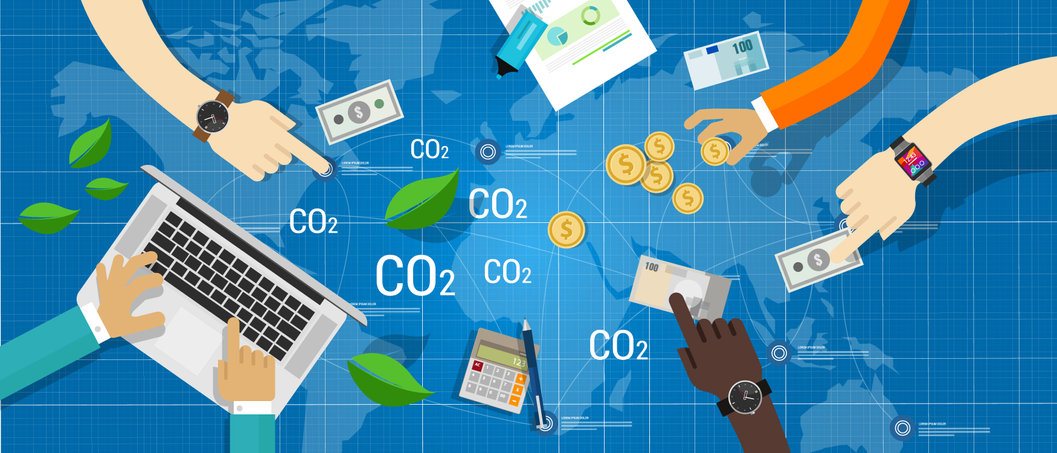The one big sticking point at COP26 is carbon trading. The trading scheme was supposed to be designed and adopted at COP24, as part of the Paris Accord rulebook. Did not happen. So it was the focal point of COP25. Still did not happen, in part because the radical alarmists despise trading as a cop out.
So now we have COP26. The other big issues are pretty fuzzy but trading is crystal clear. There either is or is not a formal system, so this fight will be fun to watch. In the meantime here is a brief look at why trading is so important and why it is a joke.
The urgent need for carbon trading, at least in the alarmist green dreams, can be summarized in three short words — planes and ships. These are the two big ticket technologies that cannot be electrified. In planes batteries weigh too much. In ships they do not last long enough. Think bringing all that stuff from China, all the way across the never ending Pacific Ocean. The batteries would fill the ship.
Mind you there are some possible exceptions. Short haul battery planes already exist, although they are quite small. Cruise ships are light weight, carrying mostly empty space for people to play in, and they make frequent stops so maybe could charge up.
Of course ships could go nuclear but the greens hate nukes as much as fossil fuels, if not more. That they have opted for chemical energy (batteries) is hilarious hypocrisy. Greens and toxic chemical batteries are strange bedfellows indeed.
But basically the huge amounts of fossil fuel burned by ships and planes have to be offset somehow. Welcome to the wacky world of carbon trading. This is the “net”in net zero.
Who needs the offsets is interesting. The rule is that ship and plane emissions are assigned to whichever country the trip originated from. Mind you that is just for one hop, as it were. If a plane lands or a ship docks then that country picks up the emissions for the next hop. I have no idea what happens if a ship offloads to another ship instead of docking. Note that the nationality of the airline or ship is irrelevant.
Given this complexity the bookkeeping is obviously wild. Plus in net zero world every ton of these ship and plane transport emissions has to be offset somehow, somewhere. A whole new well-populated field of accounting is born. So is a whole new field of fraud.
On the fraud side I here turn you over to my colleague Bryan Leyland, who is chairman of the economic panel of the New Zealand Climate Science Coalition. Here are some telling excerpts from a recent release of his:
“I first heard about carbon trading at a conference more than 10 years ago. I got up and said ‘If I was the financial adviser to the Mafia, I would advise them to get into carbon trading.’ Nothing that has happened since then changes my opinion – rather the reverse. It is interesting to compare it with electricity trading. In an electricity market, the amount of electricity bought and sold is measured to an accuracy of +/- 0.2% every 30 minutes. On top of that, when you buy electricity, you get an amount of energy of high value that you can use directly for your benefit.
With carbon trading, it is all different. If you are purchasing carbon credits from, for instance, a forest, the accuracy of measurement is probably something between +/-100%. If it is a tropical forest, it could be minus 150% because there is reasonable evidence that some tropical forests are net emitters of greenhouse gases.
But it gets worse. In between the buyer and seller is an ‘auditor’ who, in theory, can make an accurate judgement as to the quantity of greenhouse gases being traded. If the reading of an electricity meter is fiddled, one party wins and the other party loses. But if an auditor fraudulently states that a forest is absorbing say, 200 tons of carbon dioxide per annum when a more realistic figure might be 100 tons, both parties win. The forest owner wins because he sells more credits. The purchaser of the credits wins because he is out to buy a piece of paper certifying that he purchased carbon credits. If the volume is fiddled upwards, the chances are that the price per tonne will be reduced and, anyway, he probably needs to buy more credits than are available.
So, to my knowledge, carbon trading is the only commodity trading where it is impossible to establish with reasonable accuracy how much is being bought and sold, where the commodity that is traded is invisible and can perform no useful purpose for the purchaser, and where both parties benefit if the quantities traded have been exaggerated. It is, therefore, an open invitation to fraud.”
Mind you if nobody cares that the numbers are fraudulent maybe it does not matter, except for the untold billions of dollars. We are paying to keep the planes flying and the ships sailing. Indulgences do not have to buy anything but indulgence. It might be cheaper if they don’t buy anything real.
The alternative green scenario is what the radical alarmists want, which is to stop flying and stop shipping. End world trade. China will never go for that.
So there is a lot on the trading table, at least in the green dream of net zero.
COP26 awaits. Stay tuned.
